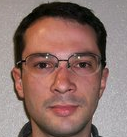
Speaker:
Christophe Bronner
Institution:
Kavli IPMU
Speaker Link:

Date:
Wednesday, February 10, 2016
Time:
10:00 am
Location:
NS2 1201
ABSTRACT:
The discovery of neutrino oscillations, which proved that neutrinos had non-zero masses, was awarded the recent Nobel prize. Since its initial discovery, the phenomenon has been studied extensively by experiments using solar, atmospheric and man-made neutrinos. The fact that a neutrino can change flavor along its propagation has now been observed experimentally in both directions, disappearance (less neutrinos of a given flavor are detected than expected from the initial flux) and appearance (interactions of neutrinos of a flavor not present in the initial flux). Most of the parameters of the Pontecorvo-Maki-Nakagawa-Sakata model describing the oscillations have been measured to a certain precision. Experiments are now trying to answer the remaining open questions about those oscillations: do they respect CP symmetry, and what is the ordering of the neutrino mass states.
The effects studied have become more and more subtle, and experiments have progressively needed both to observe larger number of neutrino interactions, and to increase the precision of their analyses and understanding of systematic uncertainties to study them. In this presentation, we will look at some aspects of the evolution towards more and more precision in the Tokai to Kamiokande and Super-Kamiokande experiments, and current effort for the study of CP symmetry and the mass hierarchy. We will focus on three topics: modeling deep-inelastic neutrino interactions to search for the mass hierarchy with atmospheric neutrinos, analysis of the T2K data and some R&D effort to be able to use higher intensity neutrino beams.
Host:
Henry Sobel
